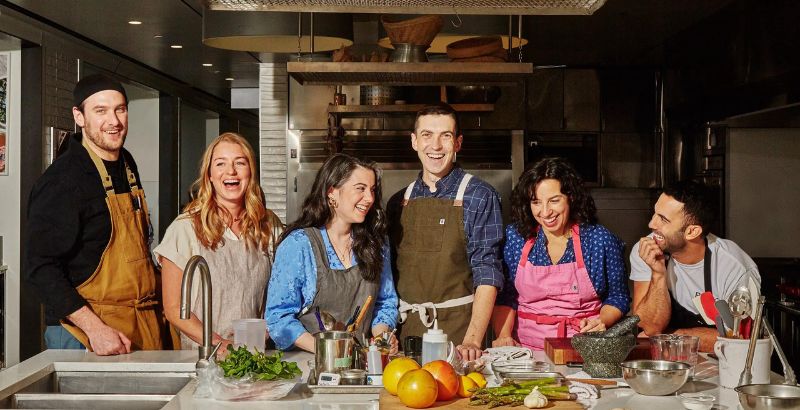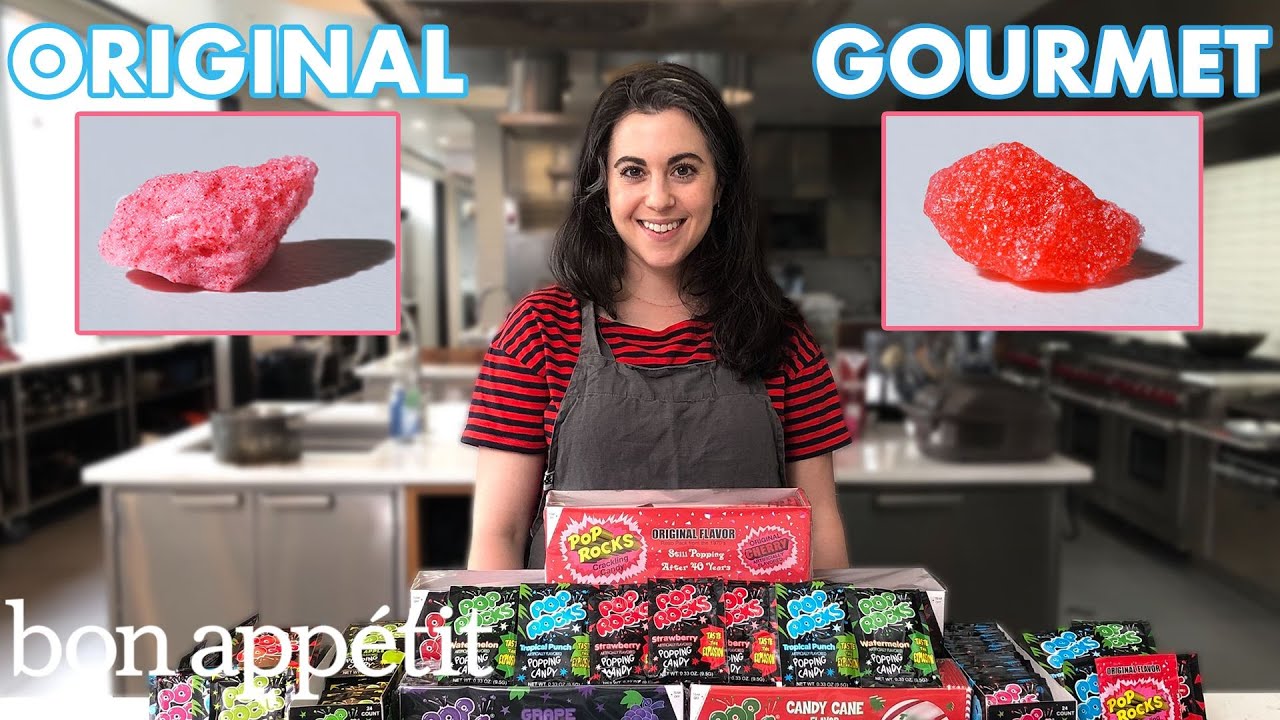
Content warning for discussions of disordered eating.
I absolutely adore Bon Appétit Test Kitchen on YouTube. Since discovering and binge-watching Gourmet Makes, one of the channels regular shows where Contributing Food Editor at Bon Appétit magazine and professional pastry chef Claire Saffitz tries to recreate classic snack foods while also elevating them, I’ve been obsessed with the channel. While I watch every video of Gourmet Makes regularly, I’ve started branching out and watching more and more of the channel’s offerings.
Unlike a lot of cooking shows, the beauty of the Bon Appétit Test Kitchen is that the chefs approach food like a challenge and a science. While not nearly as in-depth as Alton Brown’s Good Eats, which originally aired on The Food Network, the Bon Appétit Test Kitchen still creates content focused on the discovery, experimentation, and of course the passion of the chefs. The reason I love the Bon Appétit Test Kitchen isn’t that I love cooking, it is because they make cooking an adventure or science experiment.
To be honest, I hate cooking and to go one step further, I don’t really like eating. Since being diagnosed with gluten intolerance, eating has become anxiety-inducing. I hate being the center of attention. I hate feeling like a burden and more often than not when people don’t understand gluten, or gluten intolerances for that matter, they tend to treat you as a problem child more than someone with a medical condition. I cannot count the number of times wait-staff, my family, or date has made me feel uncomfortable about having to ask for a “difficult order.” It has become even worse because gluten-free diets have become trendy, so many people think I am faking my intolerance. Even so, no matter what your diet is or why you choose not to eat something is no one’s business and checking someone’s disability is always wrong.
Needless to say, I don’t have a good relationship with food. I tend to not eat enough or, on my worst days, go the entire day without eating. This anxiety coupled with taking medications that hamper my appetite is a recipe for disaster. To me, cooking is a chore and eating is a necessity and something I would prefer to never do again if I could. In addition, I often feel I don’t have the time to eat or cook or worse, I don’t deserve to because I haven’t been productive enough. And being honest about having disordered eating is difficult. It is the one health issue I have that I rarely speak about. Disordered eating is is a term used for individuals who often engaged in some of the same behavior and have similar symptoms as those with eating disorders but at a lesser frequency or lower level of severity.
But despite my strained relationship with food, I love the Bon Appétit test kitchen and more importantly, I love how it is changing my relationship with food.
The crew at the Bon Appétit Test Kitchen obviously love food – cooking it, eating it, and creating art from it. It is their job to do so. The team’s chemistry and many of the show’s reliance on experimentation and discovery has made the programming palatable for me. Sometimes when watching other cooking-related programs, I just feel a deep sense of guilt. I feel guilty because I don’t love food. Most of the Test Kitchen’s shows revolve around trial and error, and they don’t immediately love what they make and every recipe feels like a genuine challenge. From Chris Morocco attempting to recreate famous chefs’ meals from taste, smell, and feel alone, to Molly Baz learning how to make a raindrop cake, everything feels like an adventure.
From speaking with professionals, my disordered eating is complicated by a lot of my health issues, one being my ADHD. When untreated, I struggle to make myself do the simplest things or complete tasks. Cooking isn’t engaging and eating often doesn’t feel like it is worth time or effort. What is worse is when my ADHD is treated, my medication decreases my appetite. But by restructuring my brain to see cooking as a challenge, an adventure, or even a science experiment, I have slowly started to feel less guilty about eating food. For example, in my favorite show offered on the channel, Gourmet Makes, Claire Saffitz often wants to quit. The challenges she is presented with recreating and elevating classic snack foods, which are made in large processing plants, by hand are next to impossible. This was never more evident than when she tried to make Pop Rocks. Claire quickly learns that to make the candy she would more or less need to construct a pressurized cooker that would be incredibly dangerous.
Instead of giving up, Claire made her own, safe version of Pop Rocks and had a lot of fun doing it. But because she was no longer following the traditional rules of the show or even the original creation of the product itself, everything was an experiment. The team’s tenacity is infectious and when it is mixed with their humor it is hard not to relate. Furthermore, that tenacity is a reminder of how fun food and even cooking is supposed to be. Even during the most anxiety-inducing moments like when the sugar for a candy mixture burns or chocolate doesn’t temper correctly, it is never so serious that the day is ruined. Part of the fun of the Bon Appétit Test Kitchen is watching them fail, learn from that failure, and try again.
There is no easy fix to having disordered eating. Beginning therapy and being honest about the issue this year is the biggest step I have taken to tackling it since the problem began three years ago. I am not naive enough to think watching videos of the Bon Appétit Test Kitchen will cure me, but I do know it is a small step in the right direction.







